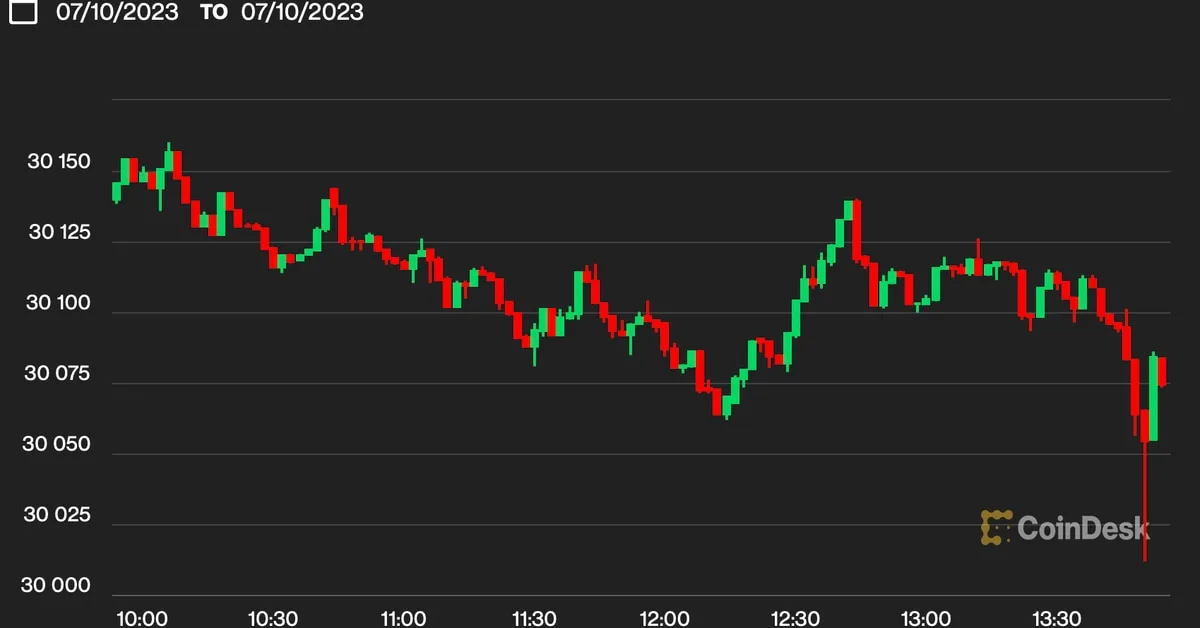Bitcoin held steady above $30,000 early Monday as producer price index (PPI) data from China suggested the global liquidity-tightening cycle that kicked off early last year and roiled risk assets including cryptocurrencies is nearing its end. According to the National Bureau of Statistics (NBS), China’s PPI, a measure of factory-gate prices, fell 5.4% year-on-year in June, the ninth consecutive monthly decline and the steepest drop in seven years. This is likely to lead to lower export prices and deflationary pressures in the global economy, as China is the largest trading partner of the world’s prominent economies.
China is exporting disinflation across the western world, David Brickell, director of institutional sales at crypto liquidity network Paradigm, said. We’re seeing it reflected in producer price inputs, but not yet fully feeding into consumer prices. Ultimately this will be good for risk as it relates to the end of the global hiking cycle. Data due on Wednesday is expected to show the consumer price index (CPI) growth rate slowed further to 3.1% in June, according to Refinitiv data cited by CNN.
So far, however, China’s PPI data has failed to spark a risk-on rally, with Bitcoin seeing little directional clarity above $30,000 and futures tied to the S&P 500 trading 0.5% lower on the day. The dollar index inched higher by 0.15% to 102.42. May’s annual increase of 1.1% in U.S. producer prices was the smallest in almost 2 1/2 years, and the U.S. 10-year Treasury yield rose to a four-month high of 4.09% last week.
Jeroen Blokland, founder of True Insights, said in a tweet that the latest PPI number does not bode well for earnings. According Brickell, Bitcoin will probably begin the next leg higher once bond yields peak. The knee-jerk reaction is to focus on the negative implications of a Chinese growth slowdown, he said. Risk assets are also adjusting to the last week’s vicious bond sell-off. As yields top out, I suspect stocks will stabilize. I expect a reversal in yields to trigger the next leg higher for BTC, especially given the underlying weakness in the dollar.
